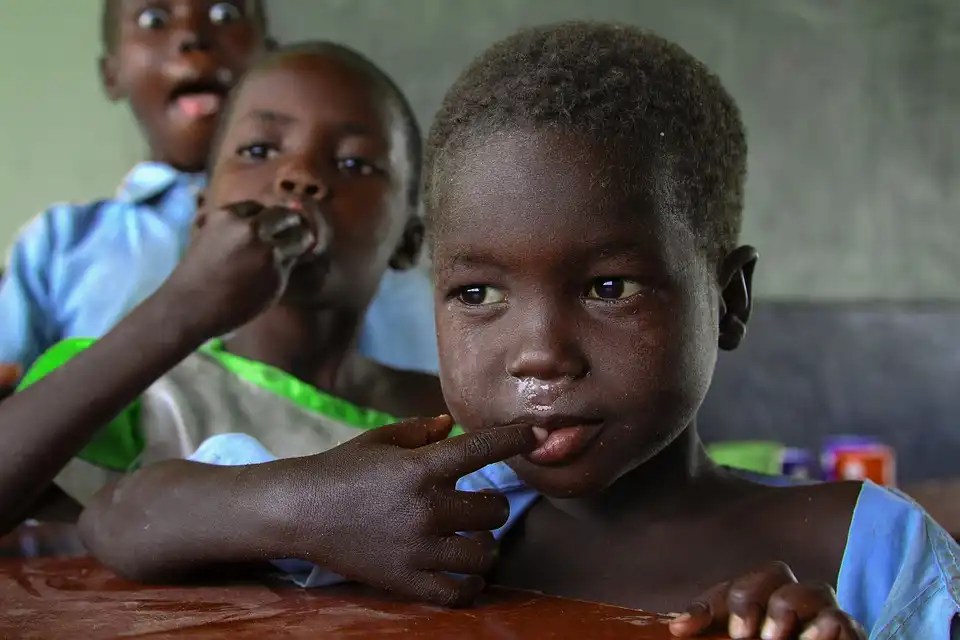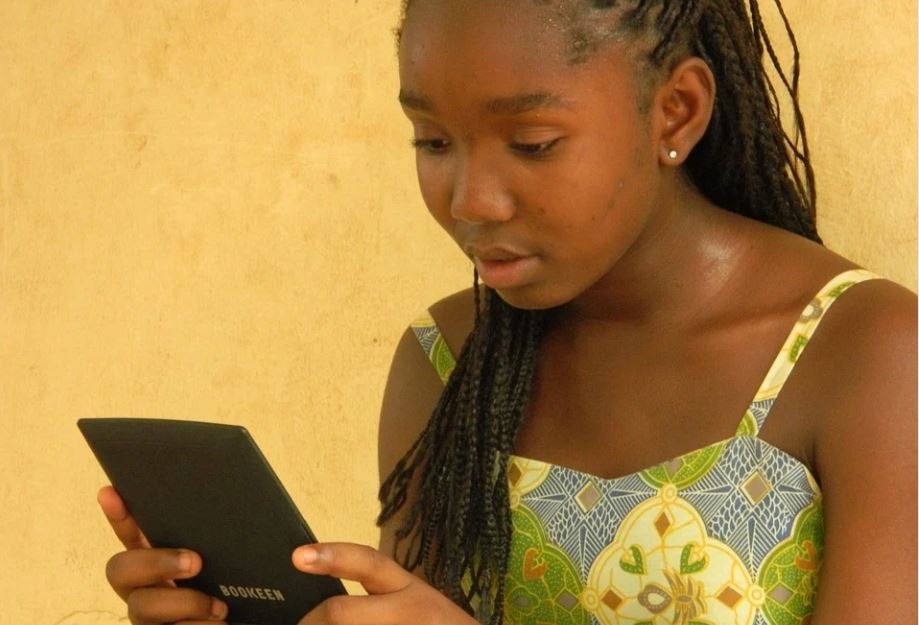
In Nigeria, girl child education has become a topic that comes to the lips of each person within the boundary. The country has struggled for long to encourage the number of educated people especially the girl folks within its walls since the establishment of 25 missionary schools in 1920 from which only three were for girls. So far, we can say that a significant mass of people are University graduates and a bigger number are high school leavers since 1994. The number of women in primary, secondary, and tertiary has increased by 30% but the disparity ratio is still high.
Children in classes in Northern eastern Nigeria
While this reality is something one can feel proud of mentioning in public, there is a lot that needs to be done. For the girl child, there are still lots of challenges hindering their potential and education in the country and the world at large. For this reason, we have decided to write about the girl child education in Nigeria: challenges and solutions.
Soon we will be celebrating the Girl Child day in October 11; a move that the United Nations adopted for international recognition of girl struggles and government moves to halt them. It is good that fellow citizens of the country and those out there know the challenges faced daily by these young girls in Nigeria while celebrating. In addition, it is essential that you know what you can do to help these lasses in the country and any other nation out there with similar issues.
As with sickness, sometimes severe issues are hard to decipher at first glance. When you look out to the events happening around you, you can witness that there are a lot of female folks in the society. You see them at the office, you see them in school, you see them on the street, some smiling, others not, and you conceive the thought that all is well. You might think things are not so bad with the women folks as we and the world are stressing in this article, you will be wrong.
Despite the fact that the government of Nigeria and other internal and external organization are striving to see that our girls are appropriately educated and defended from the challenges they face, little progress is gained. For instance, in the country, about 57% of girls are admitted in primary, secondary, and tertiary institution against the 71% for males. This fact is according to the combined research made in 2002.
In the north the disparity is so high that only 35% of the entire female population, including child and adult can read and write. The remaining 75% are illiterates.
Though in some areas of the west and the south, mostly, around Port Harcourt and the rest of the Igbo region, 75% of the female folks are literate, the disparity rate still ranges from 3% and above. Also, half of these literate females do not have a tertiary certificate.
These facts translate to fewer women in offices as against the men. Actually, the places in the workforce with the highest presence of women is the judiciary of 23% as against the male, and pediatrician 33% as compared to the male. Where you can find lots of women working are in areas that do not need educational certificates like eatery joints where you find them serving men meals and at the risk of molestation; a fact, that occurs daily.
Nigeria has failed the 2015 international target for gender equality in education according to the
Millennium Development Goals. What we experience in the country is an increase number of girl violence. According to reports on girl violence, one out of three females of the age of 15 to 24 have gone through sexual harassment, rape, or incest which does not speak well for their health, education, and psyche.

Girl child empowered with electronic gadget.
CHALLENGES FACING THE GIRL CHILD EDUCATION IN NIGERIA
Here are the existing problems our adolescent, female folks are battling every day in the country called Nigeria.
A) Religious/Ethnic Beliefs
Nigeria is a country divided into three through the hands of religion. We have the Christians, the Muslims, and the traditionalist. While all of these belief systems are different, they all have a similar view regarding the female child.
Christians are led to believe that the woman is a weaker vessel. The Quran allows men to stand above the women and subdue her even to the state of sex slave. Traditionalist is no better.
Most parents and citizens of the country are religious and rely on their Holy tests to pattern their lives. This manner of living has made many Nigerians reject modern education,
This occurrence is mostly seen in the Northern part of the country which has a predominant amount of Muslim believers. According to studies, only 35% of the women folks in this region are literate, and a significant number of those that make up this list are non-Muslim.
Be it as it may, due to the influence of religion in the society, lots of households believe that the female child is not equal to the male offspring. Therefore, the male child is provided with more chance at being educated than the female folks.
B) Culture and Tradition
This is another factor that continues to cripple the efforts of the girl child education in Nigeria. While religion has gone a long way in solidifying the household perception of man and woman role in the family and society, tradition has always been the core issue.
The tradition in the country places more value on the men folks and see women as only assistants. This is why in the nation, a woman cannot inherit the belongings of her father after his death; though in some areas when the man states his will before demise, the uncles might overlook customs. However, this is rare.
A woman birthed in Nigeria whether she is an aboriginal or foreign, she knows the unwritten rule that the women folks have their ultimate goal set on pleasing the man, the kitchen, and handling farm works.
This mentality has reduced the woman to a sex slave and servant of a man. Though this situation is not equally felt in all parts of the country, it has made sure that educating the female child is not an essential prospect to consider.
The most educated girls were once Primary school leavers, but with the continues awareness programs and the modernization of the country, it has advanced to the Lyceum level.
C) Gender Discrimination
The discrimination that women suffer is real and as worse as discrimination by the skin. At home, they do not allow the same social amenities as the men folks, mostly so in the Northern part of the region. On the streets, the men folks and elders get to decide what kind of games they are allowed to play, what they should not do or do because they are women and not due to the moral sense of it.
Even in the educational sector, the men child gets the most necessary materials over the girl folk when there is a limited supply of cash because the family sees the man as the one to bring glory to the name of the family.
When a girl aces her papers and comes top in the class, the male-child are scorned for allowing a woman to surpass them both by teachers, parents, and their fellow men. Rather than congratulate the woman for her achievements, they are considered less significant to the accomplishment of the male folks.
This kind of attitude leads to girls hulking on the streets and roadsides while the family gives the money generated to the boy to continue his education.
In education curriculum, girl history is not taught. The ladies have to learn only about the male children history and conquest of love. Also, no sex education. Female teenagers are left to learn the hard way. The family is the one that gives her the basic knowledge in a way that fit their customs. Hence, the risks and rights that a woman has are not adequately covered.
Though the good news to this is that the Federal government of Nigeria through the Ministry of Education has come up with a gender equality policy on education for both Male and female children, you can read that up.
D) High Cost of Education
since the 1980s the economic activities in the country has declined. While it tries to rise, it continues to vacillate, and this has made education expensive.
Though the government and some agencies have installed free education opportunities, it is not enough to absorb the number of less privileged individuals in the country.
The reality of this situation does not fair well for the female child. Because the country is more advanced in knowledge than it was a decade ago, many families want to have a graduate in their homes.Their method of selection is usually based on sex, intelligence, and ranking.
If the girl child is smart and older, the family might allow her to get to a particular stage in education before the male child is given all the care he needs. Wealthy families and less narrow-minded households are the only places where the girl-child could enjoy the privilege of getting to the university and out. Yet, most times it is ingrained in them that all they are learning is to benefit the man and remove shame from the family.
E) Insecurity
It has not been long since we all heard about Boko-haram and their adoption of over 300 girls. That incident did not play well in the sense of security for the female folks. Instead, they feel discouraged to go to school due to the various risks involved.
As if that is not enough, we keep hearing of raping, sexual abuse, and manhandling of kids, mostly the female children. All these and more regarding lapses in security are significant catalysts that discourage some teenage girls from going to school. This occurrence needs to change,
POSSIBLE SOLUTIONS TO GIRL CHILD EDUCATION CHALLENGE IN NIGERIA
Families give out their female children to marriage when they are as tender as 11. While they should be in school learning, a matured man leads them into legal, sexual abuse due to culture. They are driven to suffer VVF: Vesico Vagina Fistula and other sexual harm because of early marriage.
Families view them as a one-time financial solution to change the status of the family, because of gender discrimination.
Men do not value them as should and can force their will on them in different ways, due to social perception. All these and more are the afflictions women and girl children have to suffer in Nigeria due to the four factors enumerated above, so what is the way forward?
We are in the solution section of the girl child education in Nigeria: challenges and solution. Sit tight and find out how to help protect your wife, mother, female friend and child.
A) Encouragement
Some parents love to see all their children educated irrespective of gender because of the mentality that education is wealth. However, the high cost of education and limited sources of free learning is a big hitch. The Federal government should make the necessary moves to reduce significantly, the course of education so these children can have the chance to become learned.
B) Productive Policies
The current laws protecting the female child is not good enough. The government should create rules that will raise a deserving punishment for parents who do not take their female children to school. They should also, raise up strict laws to deal with abusers of all kind. These will give the children a sense of security and the chance they need to shine brightly in the society.
C) Adequate Healthcare
Teenage pregnancy, abortion, sexually transmitted diseases, has a role they play in hindering a female child’s education aside from the chance of costing her The government needs to step up in the effort to educate the lasses about healthcare. It will aid this set of people to know more about themselves, the risks, and how to avoid them. Also, learning eye-opening things like this could fan the urge in them to become learned like those educating them.
D) Establishment of NGO’s
Those marketing on the streets is also part of the girl child. Non-governmental organizations and the government should provide them with a way to continue their education. Most of these females are interested in completing their study, but lack of funds or other factors have prevailed against them. The girl child needs to be heard, seen and recognized, and how this should be don is in the collective efforts of the NGOs and government of the federation by should give them a chance through online relatively low courses, evening schooling, and more.
E) Gender Equality
While the male folks are strength wise, stronger and ambitious, the women folks are generally smarter and loyal. The federal government should make policies in the workforce and education grounds that teaches the households in the country how to treat their women. A woman should have equal rights to what a man has because they are both first human beings before gender.
In conclusion, with the Nigerian citizens feeling the air of gender equality in offices and other areas of the society, the house hold section of the society will change its view on girls and the women at large.
On this note, we conclude the topic Girl child education in Nigeria: challenges and solution. We hope that through this piece you have had a glimpse of what the adolescent females go through and will stand up to do the right thing.
As usual, kindly leave a comment below if you have an input or known of challenges still faced by the girl child in Nigeria, as this would be of immense help in proffering possible steps and solutions towards eradicating this lingering problem.




